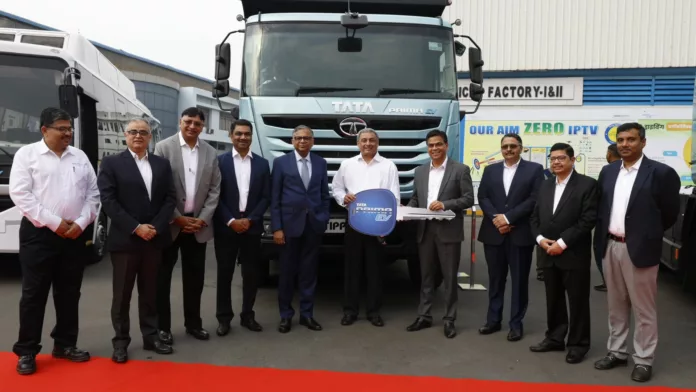Home Automobile Tata Steel receives its first next-gen, eco-friendly fleet of commercial vehicles from...
Sign in
Welcome! Log into your account
Forgot your password? Get help
Password recovery
Recover your password
A password will be e-mailed to you.

